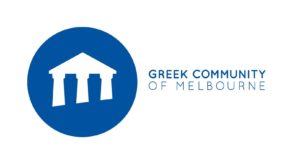Greek History and Culture Seminars: Did the Greek Revolution of 1821 really happen? Myths, counter-myths and historical knowledge.
Presenter: Vrasidas Karalis
Language of Presentation: English | R.M.L.G.*: 0 – No knowledge of Greek required.
NOTE: This seminar was originally planned to be held at the Mezzanine Level but the University of Sydney has placed travel restrictions on its acedemics
Synopsis
The significance of the Greek Revolution of 1821 has never been questioned and all historiographical tradition persistently explores the realities around its impact of modern Greek nationhood. Recently a debate has erupted amongst historians about the contribution of the Revolution to the creation of the Greek state and nation.
Certain historians claim that it was the ultimate outcome of a long process starting with the Fall of Constantinople in 1453 and others suggest that it was due to the influence of the French Enlightenment and French revolution. The debate implies the underlying political conversation about the construction of the Greek nation and its historical identity.
The paper wants to address such vexing issues and attempts to propose a solution to questions of constructivism vis-à-vis historicism in the knowledge and interpretation of the past. The Greek revolution is the ultimate example and field of knowledge that could be used as a template to explore the perception of the history both as narrative and lived reality. The paper also discusses some rather overlooked interpretations of the Revolution with special emphasis on Arnold Toynbee.
Bio
Professor Vrasidas Karalis holds the Chair of Sir Nicholas Laurantos in Modern Greek and Byzantine Studies at the University of Sydney. He works in the area of Greek Cultural Studies since the Byzantine and Modern periods.
He has published extensively with special emphasis on Byzantine historiography, Modern Greek political life, Greek Cinema, Balkan culture, European Union and Greece.
He has translated Patrick White’s Voss and The Vivisector, as well as well Michael Dransfield’s poems into Greek. He has also translated modern Greek poetry into English, by Nikos Karouzos, Kiki Dimoula, Andreas Angelakis etc. He is the editor of Modern Greek Studies (Australian and New Zealand.)
His main publications in English include, A History of Greek Cinema (Continuum 2012), Realism in Greek Cinema (I.B. Tauris, 2017), Recollections of Mr Manoly Lascaris
(Brandl & Sclesinger, 2007), The Demons of Athens (Brandl & Schlesinger, 2013), Reflections on Presence (re.Press, 2016) and The Glebe Point Road Blues (2020). He has also edited the collections Cornelios Castoriadis and the Project of Radical Democracy (2013), Martin Heidegger and the Aesthetics of Being (2008), Power, Justice and Judgement in Hannah Arendt (2012). He has been the recipient of awards in translation and nominations for his critical work. He is awarded the Federation Medal of Australia in 2003. He is currently working on the work of the cinematographers George Miller and Theo Angelopoulos.
HOW TO PARTICIPATE
In order to keep everyone safe we have organized this seminar to be delivered online. However, we are well aware that for some, a large part of the appeal of our seminars is the very active audience participation. Therefore we are providing two ways for you to enjoy the seminar:
If you want to actively participate and ask questions at the end of the seminar you will need to join us through a Zoom Webinar – for which you’ll need to pre-register by following this link:
https://us02web.zoom.us/webinar/register/7516128872911/WN_97Hm5PZ8Q52srZw21OVF5Q
If you prefer to sit back and enjoy the show, just join us through our Facebook page or our YouTube page where we’ll be live streaming the event.

